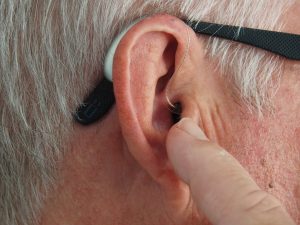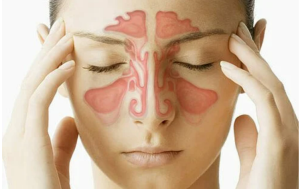The stomach naturally produces acid to digest food. Sometimes this acid can make its way up the esophagus and into the throat, a condition called Laryngopharyngeal Reflux (LPR). LPR often occurs without heartburn, making it difficult to diagnose, and is often considered a “silent” disease.
What are some symptoms of LPR?
- Hoarseness, especially in the morning
- Chronic throat clearing or persistent cough
- Chronic sore throat
- A feeling of something caught in the throat (also known as globus)
- Excessive mucus/post-nasal drip
- Difficulty swallowing
- Restless sleep
How do we diagnose LPR at Montgomery County ENT Institute?
In order to properly evaluate your symptoms, we will use a camera to directly visualize your nose and throat (nasolaryngoscopy). This can be done in the office at the time of your visit with some topical anesthesia. This allows us to assess the cause of your symptoms. Signs of LPR in the larynx usually involve inflammation or redness around the larynx.
What is the treatment for LPR?
Typically treatment for LPR involves dietary changes and an over-the-counter Anti-Reflux medication. Here is a list of some foods to limit when suffering from LPR:
- Cigarettes
- Coffee
- Alcohol
- Peppermint, spearmint
- Tomatoes and tomato sauces
- Spicy foods
- Milk and milk products
- Orange juice
- Fatty foods
In addition to eliminating these foods, here are some additional tips to manage LPR:
- Eating smaller, more frequent meals
- Sleeping with your head elevated 4-6 inches
- Using a wedge pillow
- Placing a brick or block under the head of your bed frame
- Weight loss
Aren’t GERD and LPR the same thing?
Although GERD and LPR are related to acid produced from your stomach, they can be caused by different amounts and types of reflux. It’s possible to have GERD without LPR and to have LPR without GERD. Because of this, it’s important for an ENT professional to examine you.
What if my symptoms don’t go away?
Depending on the severity of symptoms and the in office exam, some patients require longer treatments than others. If symptoms are not improving, you might require an evaluation by another specialist (like a gastroenterologist).
How can Montgomery County ENT Institute help?
If you or anyone you may know is experiencing symptoms that might be from acid reflux or “silent” reflux, contact our office today for a thorough evaluation of your throat.


